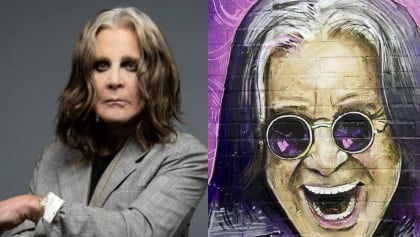
This year’s BAFTA nominations were always going to be interesting. Not only to watch how they bounced back from previous years’ #BaftasSoWhite embarrassment, but also to see how a year without cinema tipped the scales in favour of the smaller, often better films that might have missed their chance before COVID levelled the playing field. Sure enough, an extraordinary year has kicked up an extraordinary set of nominations – with history-making nods for female directors, big spotlights for small films like Rocks, Calm With Horses, His House and County Lines, and a move towards a greater spread of diversity that finally feels almost genuine.
Although there are some high-profile snubs to dwell on (where’s Delroy Lindo? Carey Mulligan? One Night In Miami? Steven Yeun? Viola Davis? David Fincher?), it’s also worth looking closer at what this year’s nominations mean for film awards in general. With the Oscars just around the corner (and these BAFTA nods a likely indication of a similar spread in Hollywood), are this year’s nominations a sign of the industry getting things right by accident or design?

If the pandemic hadn’t hit Hollywood last March, today’s announcement would probably look very different. No Time To Die would surely have cleaned up the technical awards, Best British Film and maybe director (BAFTA loves Bond). In The Heights would probably have won everything (BAFTA loves Lin-Manuel Miranda). So would The French Dispatch, West Side Story and Dune – films with just the right mix of audience pull and artistic worthiness to fall into the always weird sweet-spot between arthouse and blockbuster that practically guarantees a gong.
Last year’s winner, 1917, was a prime example (enough explosions for a bag of popcorn, enough camera trickery for a glass of wine), as was Roma (black and white, subtitles… but made by the guy who brought you Harry Potter and the Prisoner Of Azkaban) and Joker, Jojo Rabbit, Judy, The Shape Of Water, Darkest Hour and just about every other film that’s ever walked home with a mask. BAFTA winners are almost always good, sometimes great, but they’ve rarely been the best film of the year – just the best film to bridge the gap between audiences and critics.

Last year, #BaftasSoWhite drew attention to an even bigger problem that was tied to the same old industry standards – that every nod for another safe bet came at the expense of something that actually reflected the signs of positive change that we were seeing on our screens. Scarlett Johansson and Margot Robbie got two nominations each, while Jennifer Lopez, Eddie Murphy, Lupita Nyong’o, Antonio Banderas, Cynthia Erivo and Awkwafina were all snubbed. Throw in missing nods for deserving female directors like Joanna Hogg, Claire Denis and Greta Gerwig and you had an awards show that felt as stuffy as Prince William’s speech (can’t wait for all the royal awkwardness this year…)
Even before COVID, the British Academy was keen to avoid another whitewashing by introducing a new longlist that made the voting process fairer (in short, it actually meant that the people voting for the films had to watch them…) There’s every chance that films like Nomadland, Minari, Saint Maud and Rocks would still have been recognised without lockdown giving them PVOD prominence, and that artists like Theresa Ikoko, Lee Isaac Chung, Chloé Zhao and Radha Blank would all have still found the spotlight they deserve. But if so many bigger films (with so many more PRs working on their awards campaigns) had been in the mix too, how many smaller titles would have been muscled out of the way again?

A handful of weighty, worthy four-star films like The Trial Of The Chicago 7, The Mauritanian and The Father made the cut this year, but they’re starting to look oddly out of place on shortlists full of more exciting, challenging films that offer something new to say. This year’s BAFTA nominations paint a welcome picture of diversity, inclusivity and some of the best talent around, but they also show us an industry struggling to know what do with itself – casting out nets in all directions because it hasn’t got so many old white male fish to catch for a change.
We all need to celebrate the news that #BaftasSoWhite is moving closer to #BaftasSoRight, but the real test will come next year when they have to weigh another crop of exciting, interesting, diverse films against the tidal wave of big-budget awards-bait that Hollywood is desperately waiting to release when the cinemas open again. Who’s going to win in 2022? The next Sound Of Metal… or James Bond?
The post It took a global pandemic for the BAFTAs to finally get it right appeared first on NME.






